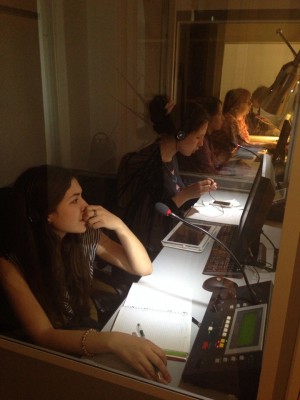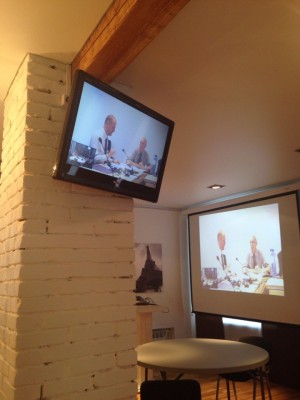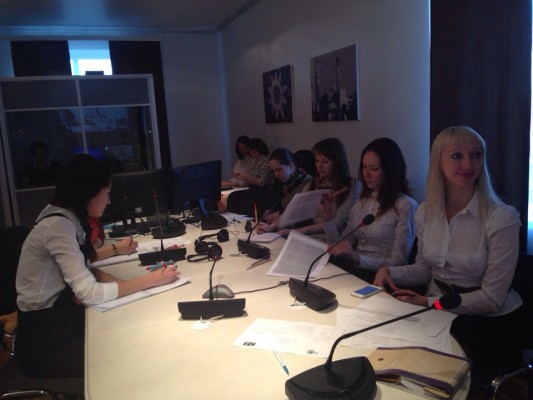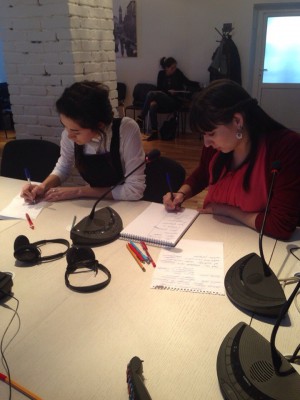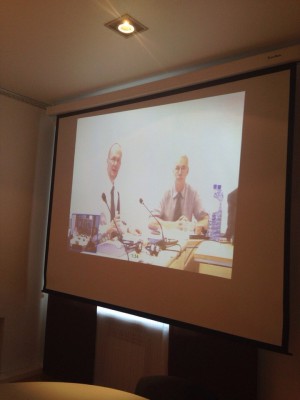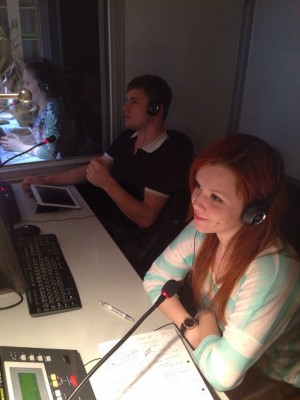Virtual Class with the European Commission on April,11
On April, 11 the Caspian Higher School of Interpretation and Translation held a virtual class with the European Commission. There were not only our MA students among the participants but also students of the German interpretation department. For example, KarineYasayan performed consecutive interpretation from German into Russian; the original speech was about the upcoming EU elections. It was the first virtual class for the student and our Brussels colleagues gave Karine some useful advice concerning both the interpreting itself and the increasing of background knowledge. Our English speakers – Liam Long and Michael Somers – prepared speeches on the medical insurance system in the USA and mobile phones in Europe. Four students were interpreting from English into Russian, including the 1st year MA students Maria Dedesova and Olga Afanasyeva and the 2nd year MA students Ekaterina Kuznetsova and Mariam Romatalieva. Michael and Liam were mainly commenting on background knowledge, interpreting note taking, a correct understanding of the original speech sense, certain words and other issues our students faced during the interpretation. The 2nd year MA student Maria Avdaseva got a challenging task – the student was interpreting a speech delivered by Nataliya Kabakova from Russian into English. The speech was devoted to the TV zombieing and how Mass Media can influence our consciousness. As the European Commission interpreters noted the speech was quite challenging but the student managed to interpret and to render the main information and ideas of the original speech. Maria also got some advice from Michael and Liam concerning the general structure of interpretation as well as the choice of lexical means in English.
Other MA students of the Caspian Higher School of Interpretation and Translation also participated in the virtual class – they were changing each other in the interpreting booths during the whole VC; the students were interpreting original speeches and students’ interpretation as well as the lesson itself, communication between the participants and their comments. When the VC was over our teachers (who had a double task that time – they were assessing the consecutive interpretation of the participants and the simultaneous one of the students in the booths) also commented on the simultaneous interpretation explaining main mistakes and correct versions of interpretation.






